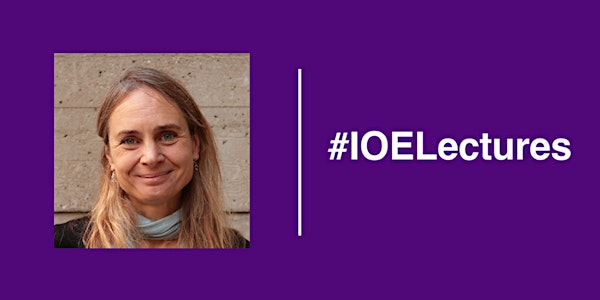
Exploring the neurocognition of second language speaking and writing
A task-based language learning perspective
Date and time
Location
IOE, UCL's Faculty of Education and Society
20 Bedford Way London WC1H 0AL United KingdomAbout this event
- 2 hours
For many, the ability to speak and write in a second language is key to achieving their academic, professional, and/or personal goals. Task-based language teaching has been proposed as a promising approach to help learners achieve these aims, preparing them to carry out genuine communicative tasks aligned with their future needs. However, to help develop effective task-based language teaching materials and assessments, it is essential to first understand the neuro-cognitive processes that underlie task-based performance and learning.
In this lecture, Andrea will take you on a methodological journey introducing various ways to study second language speaking and writing processes, both more traditional (e.g., verbal protocols) and state-of-the art (e.g., eye-tracking, keystroke-logging, fMRI). Drawing on her own and colleagues' work, she will highlight methodological advances in the field, share what recent research has revealed about the neurocognition of second language speech and writing, and discuss potential implications for task-based language teaching and learning.
Speaker
Professor Andrea Révész
Andrea Révész is a Professor of Second Language Acquisition at IOE, UCL’s Faculty of Education and Society. Her main research interests lie at the interfaces of second language acquisition, instruction, and assessment, with particular emphases on the roles of task, input, interaction, and cognitive individual differences in second language acquisition. Currently, she is also investigating the neurocognitive processes underlying second language speaking and writing performance. She serves as associate editor of the journal Studies in Second Language Acquisition and co-editor of the John Benjamins Task-based Language Teaching book series. She is past president of the International Association for Task-based Language Teaching (TBLT), a winner of the 2017 TBLT Best Research Article Award, and a recipient of the 2018 TESOL Award for Distinguished Research.
Respondent
Professor Peter Skehan
Peter Skehan (Ph.D. Birkbeck) is an Honorary Research Fellow at IOE. Previously he taught at universities in the U.K. (including IOE), Hong Kong, and New Zealand. He is interested in second language acquisition, especially task-based performance, language testing, and foreign language aptitude. Recent publications have appeared in the Modern Language Journal on speaking style (with Francine Pang) and Language Teaching, on the implications for testing speaking of recent research on second language task-based performance. Most recently, with Edward Wen and Richard Sparks he has edited Language Aptitude Theory and Practice (CUP: 2023). He is currently working on ways of improving the measurement of second language task performance, specifically by looking at the range of indices for accuracy, complexity, lexis and fluency.
Chair
Professor Li Wei
Director and Dean at IOE, Li Wei's research covers many aspects of bilingualism and multilingualism, including language acquisition in childhood, education policy and practice regarding bilingual and multilingual learners of minoritized and transnational backgrounds, and the cognitive benefits of language learning. He is editor of the International Journal of Bilingual Education and Bilingualism and the Applied Linguistics Review. He has won the British Association of Applied Linguistics Book Prize twice, for the Blackwell Guide to Research Methods in Bilingualism and Multilingualism (with Melissa Moyer) and Translanguaging: Language, Bilingualism and Education (with Ofelia Garcia). He is a fellow of the British Academy, Academy of Social Sciences, UK, and Academia Europaea.
For more information about UCL's privacy policies and how UCL uses your data, please see the UCL privacy notice.